Volunteer Report on the BOKASHI Fertilizer Project
We, Japanese Canadians, S and K attended the Bokashi project as volunteers on 4/29/23 at the Collingwood Neighbourfood House near the Joyce-Collingwood skytrain station.

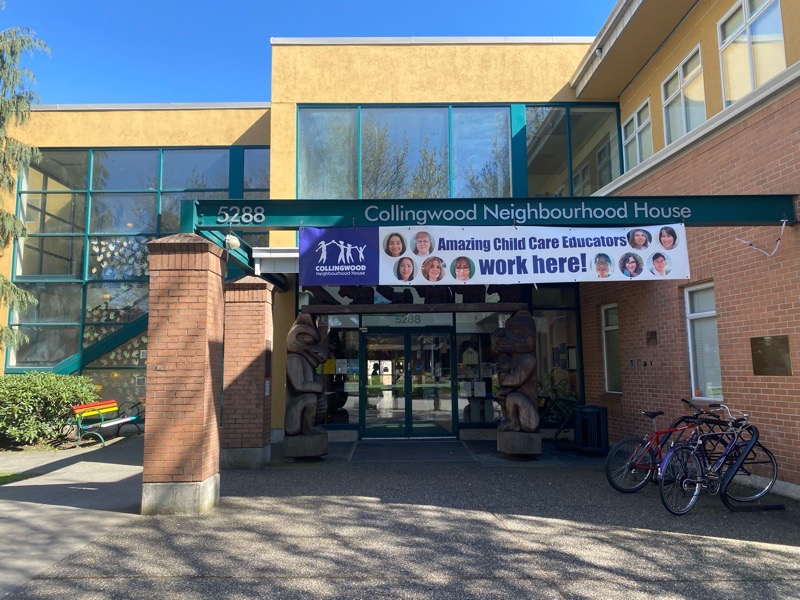
What is Bokashi?-Fermented Organic Fertilizers
Bokashi is Japanese word which originally means Dilution but the project leader and Canadian people seem to use it as Fermented organic fertilizers. In the North America, Kombucha has been widely misused as a popular fermented tea drink without any Kombu (Kelp, sea vegetables), while the Japanese Kombucha means kelp-infused warm tea. Therefore, the Bokashi seems also misused, but may be fine to understand as Fermented Organic fertilizers that can be hand-crafted from organic and local food wastes. Bokashi fertilizers tend to be very condensed, so we need to use it by diluting with water.
The First Nation`s localized way & Ingredients
The Bokashi project leader was an indigenous lady, and she led us, 20 volunteers, to produce Bokashi fertilizers in her First Nation`s localized way. Her main ingredient was the baked salmon wastes as organic food wastes. The other ingredients are as follows in the piling order:
1) Corn stems stored since last fall
2) Straws
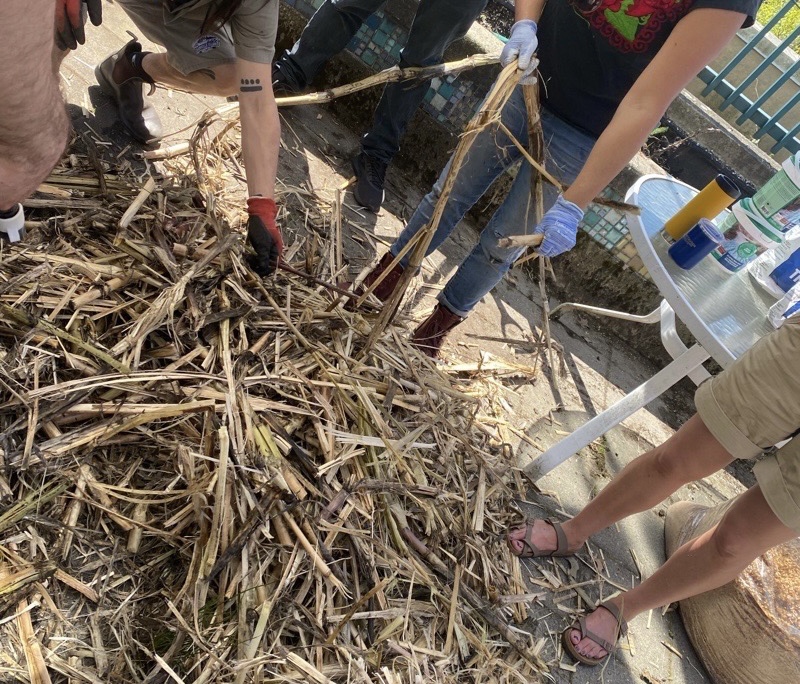
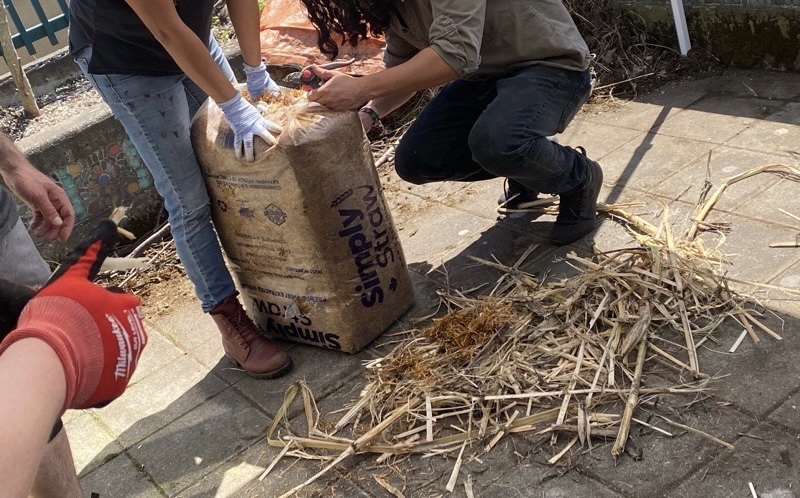
↓
3)Garden soils at the House garden
4)Soils from the First Nations` Forest
5)Fermented Bokashi fertilizer
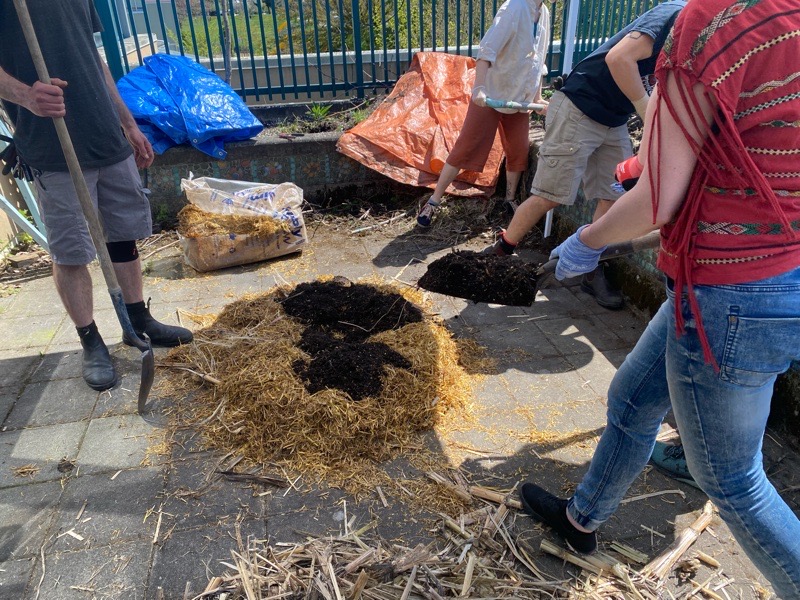
↓
6)Grilled Charcoals
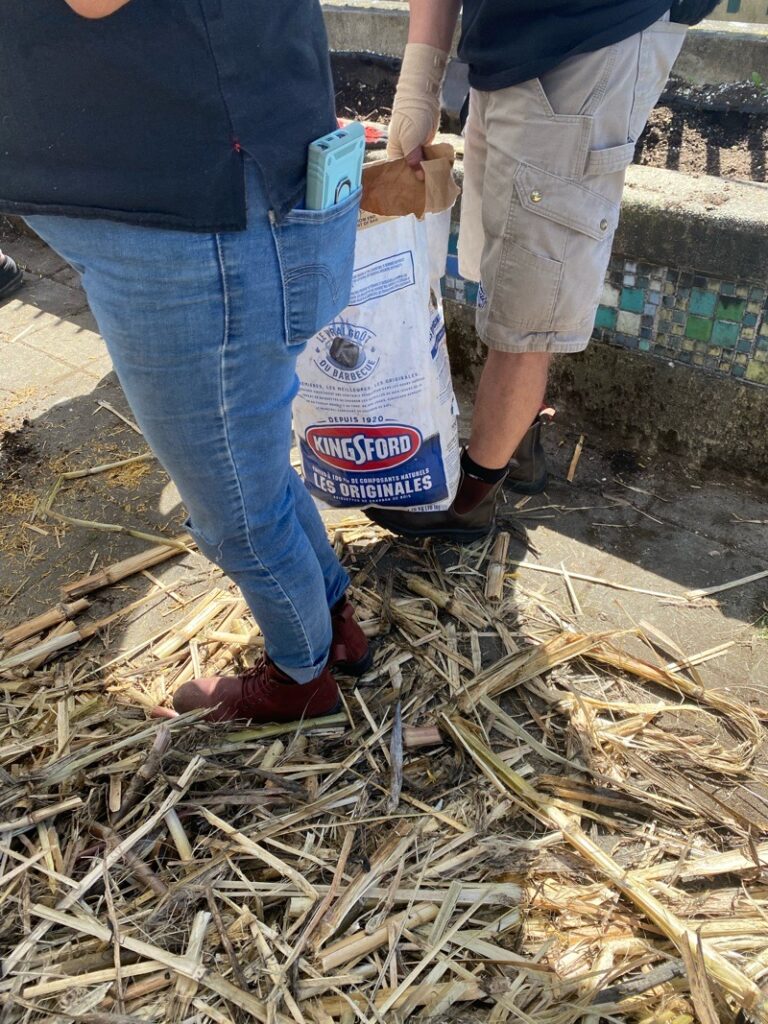
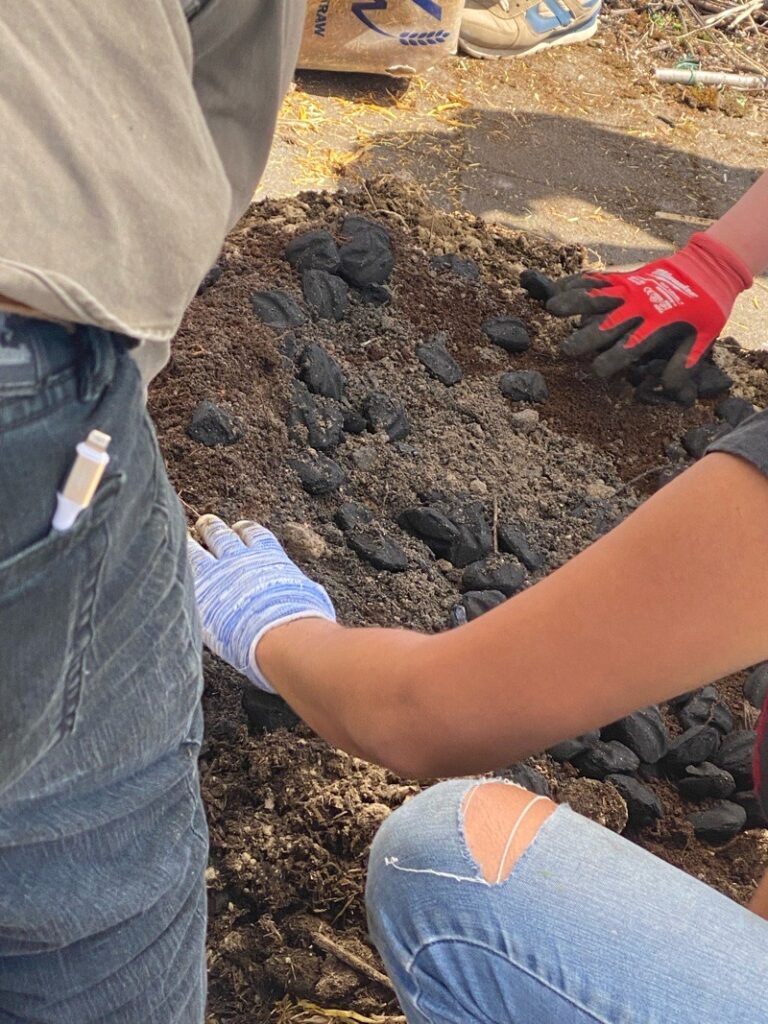
↓
7)Sugarcane Molasses
8)Water
9) Yeast
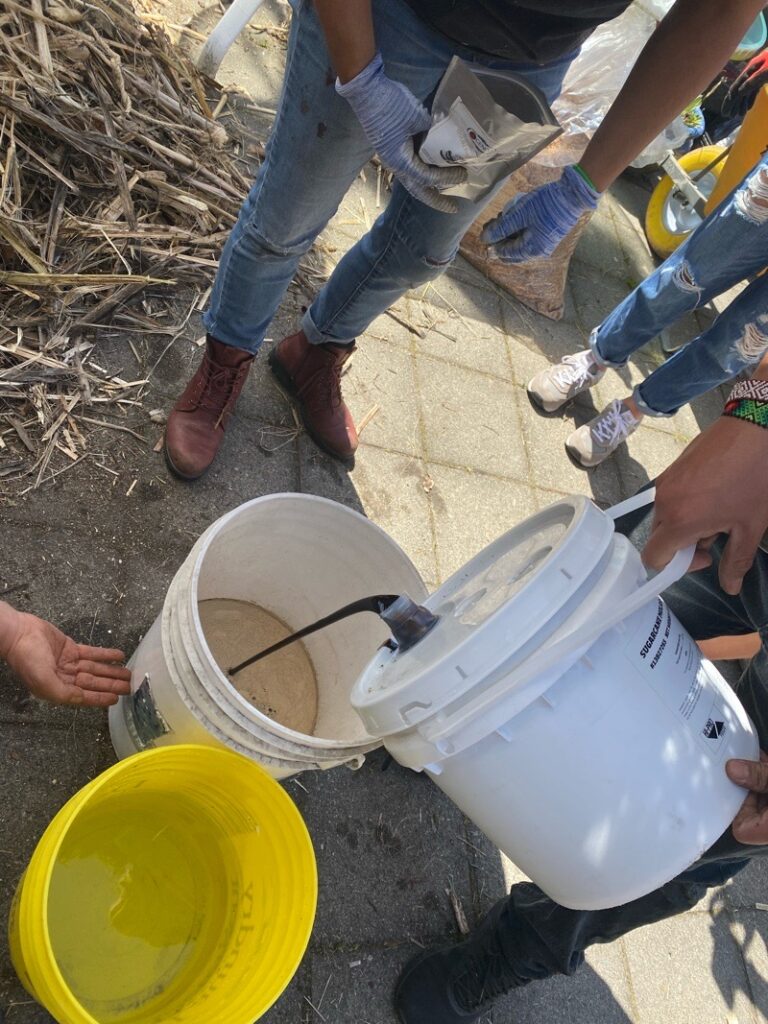

↓
10)Coffee bean skins
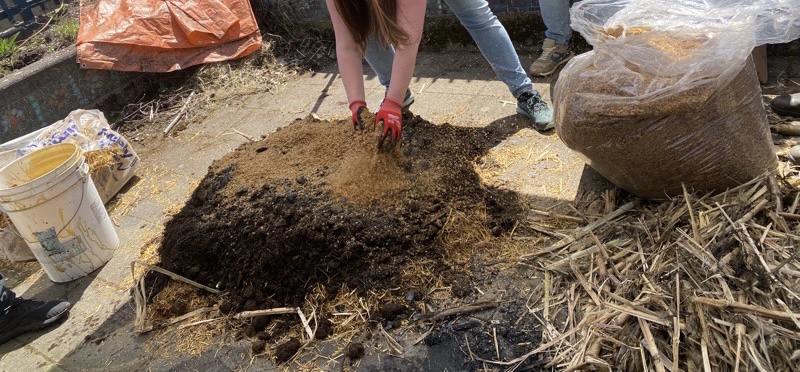
↓
11) Salmon wastes (and some other food wastes)
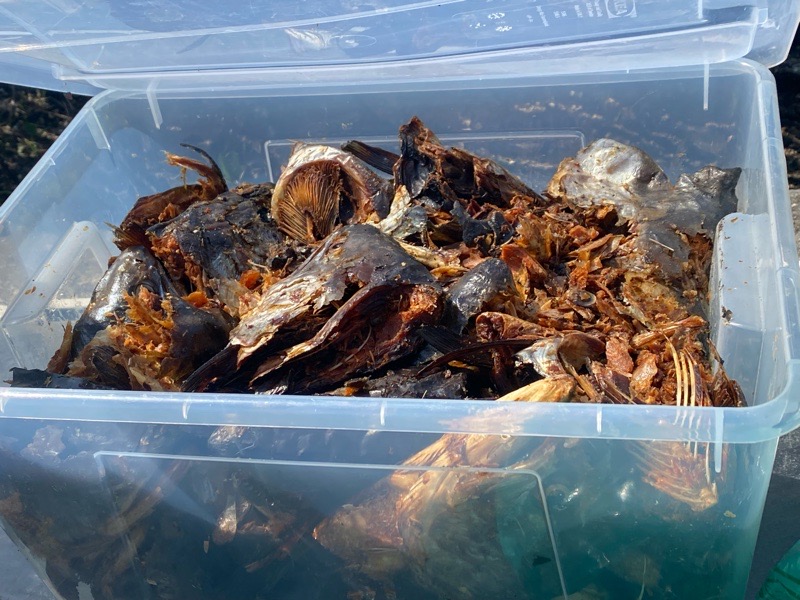
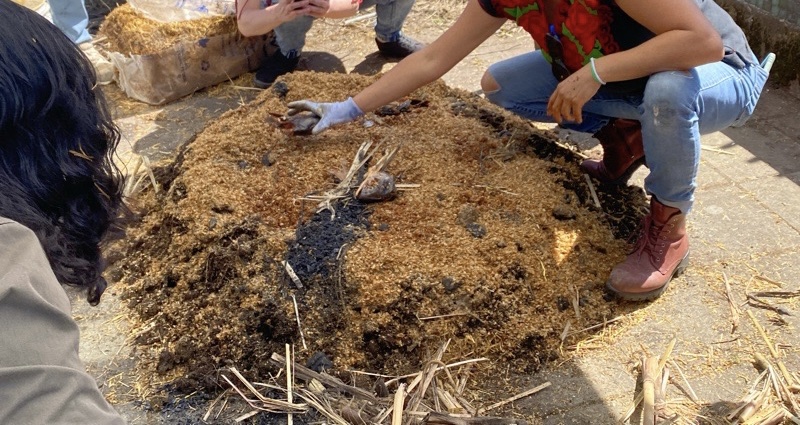
↓
Repeat piling 1)-10)x 3 times, then
Finish with 3) soils &10) coffee bean skins to cover the Salmon/food wastes
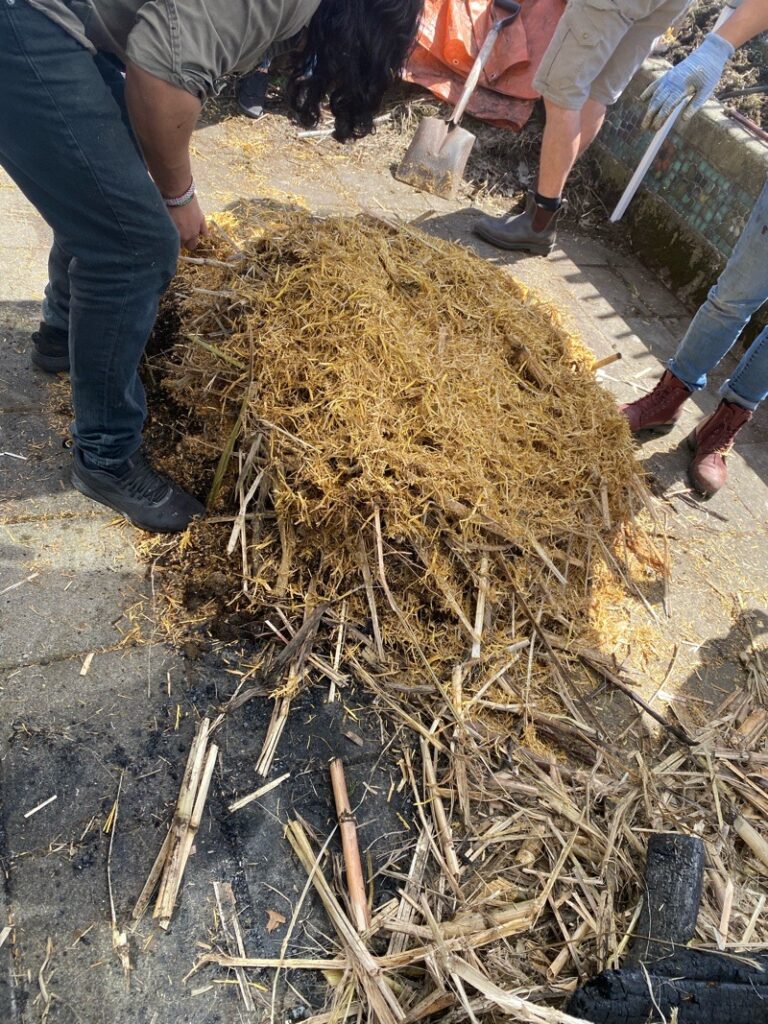

↓
Lastly, mix all evenly, keeping Salmon/food wastes inside not to be found by crows/mice. Cover and leave under the sun to promote the fermentation for 2 weeks.
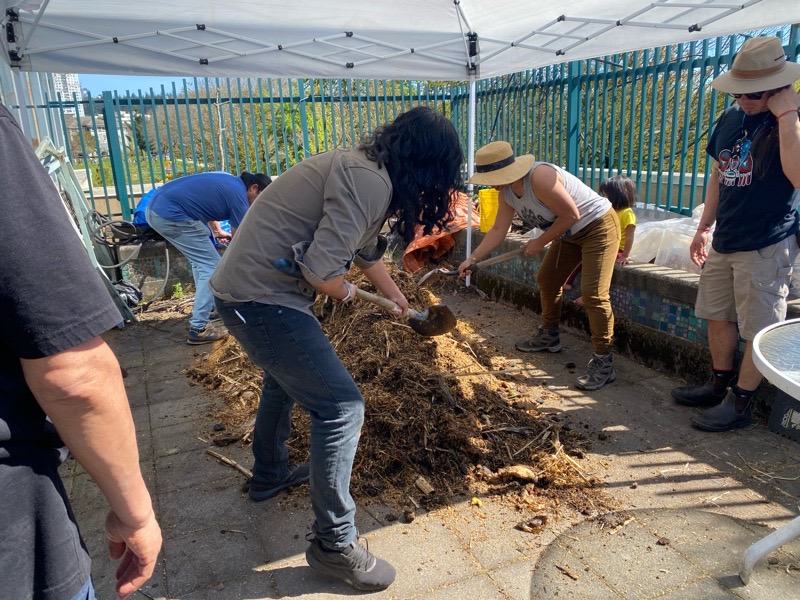
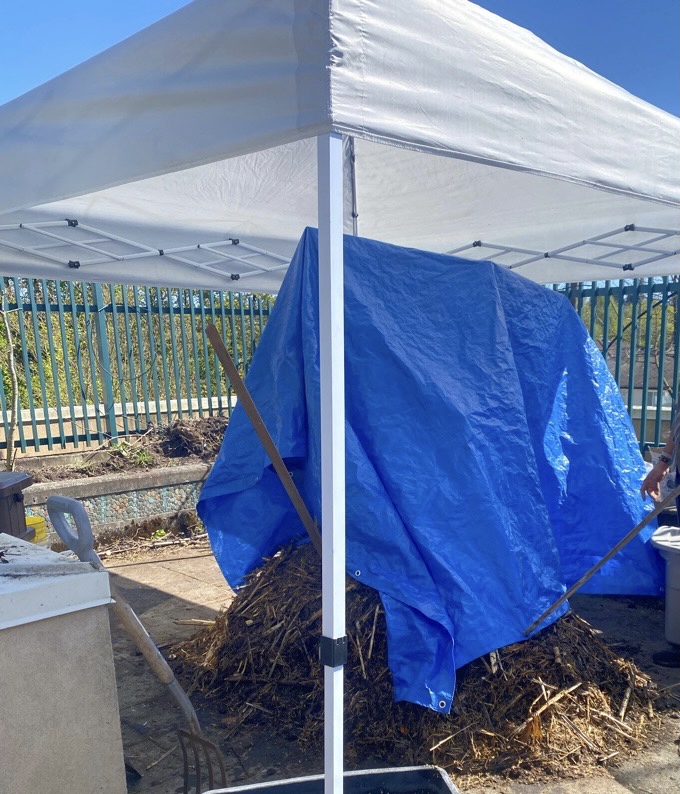
For the next 2 weeks, we volunteers will come back and take turn to mix up the pile, twice a day for the first 4 days, then once a day for the rest 10 days to complete the fermentation.
The leading instructor told that it takes only 2 WEEKS if we frequently mix it up, but if we leave it without mixing like usual garden compost, it would take 2-3 YEARS!
Our Enjoyable Volunteer Lunch on 4/29
We, volunteers were offered great lunch as shown the photos. It is not plant-based but with wild beef (buffalo) meat, the home-made lunch has great energies and we enjoyed chats with plant-loving people/gardeners from Peru, US, Japan, China, Mexico, Canada, etc.




We as Japanese, have got surpirsed that a First Nation lady kindly brought the herrings eggs on kelps! (In Japanese, 昆布に産み付けられたニシンの卵、子持ち昆布)
This is the same with a traditional Japanese food, and the First Nation people regularly eat it by collecting from the Pacific ocean facing to Japan. One difference is thata Japanese use soy sauce on it, but the FNs don`t…we missed soy sauce, but fully enjoyed the rare fish eggs with the FNs and ocean energies.
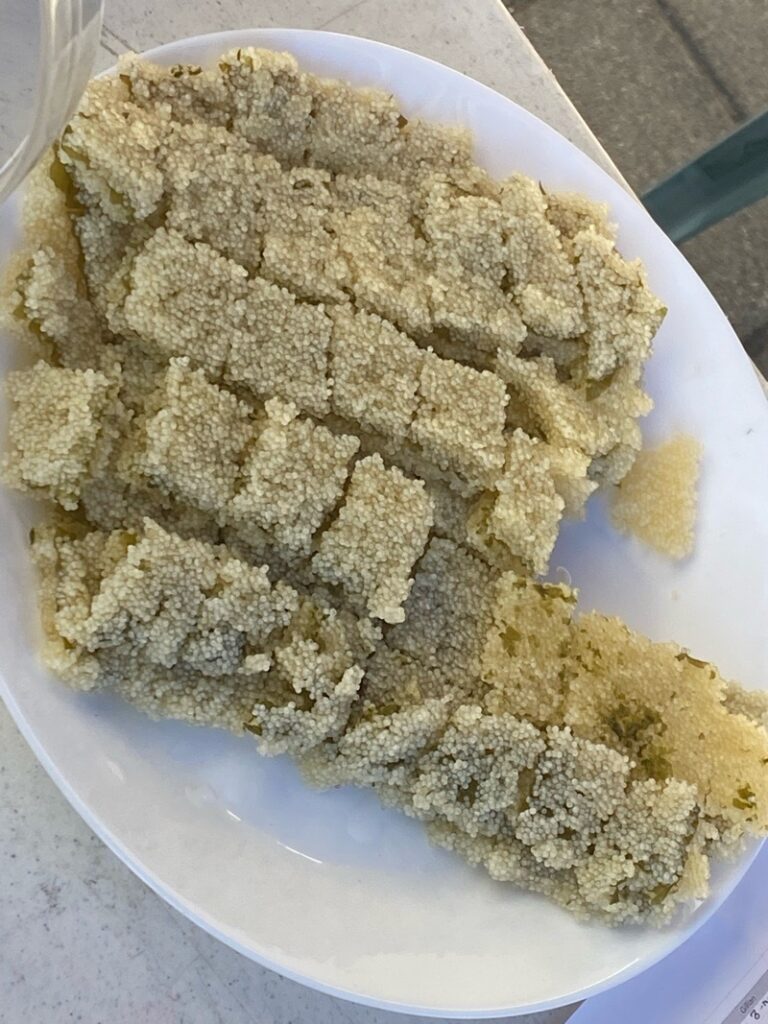
Interested in volunteering on May 12th, 2023?
to mix and finalize the Bokashi fertilizers
We will return to the pile on 5/12 Friday (possibly some time between 5-7 PM, on the last day of fermentation. The time may be flexible, up on your request.
If you would like to see the finished Bokashi fertilizers and come with us, feel free to contact us via Whatsup or the following email addresss:
Plantian.org via Gmail.com
Meeting Place to volunteer:
Collingwood Neighbourhood House
5288 Joyce St, Vancouver, BC V5R 6C9
1 min walk from the Skytrain Station of Joyce-Collingwood
Please check in Google Map;
https://goo.gl/maps/x3WtXSuEVMGGtqRW7



